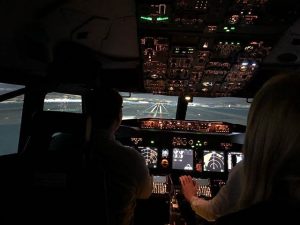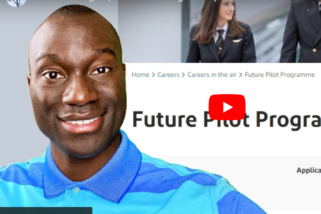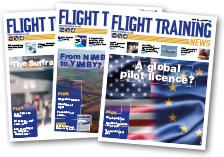Virtual Aviation has launched its new ‘Airline Ready’ APS MCC course, the first of its kind to be approved by the UK Civil Aviation Authority.
The APS MCC course structure was introduced by EASA to deliver enhanced MCC training to Airline Pilot Standards. It is intended to equip a pilot with the knowledge, skills and attitudes required to commence initial type rating training to the standards generally required by a commercial air transport operator. On 8 December 2017, EASA published ED 2017/022/R which updates the Acceptable Means of Compliance (AMC) and Guidance Material (GM) to Commission Regulation 1178/2011. This amendment introduces the new APS MCC.

The new framework is intended to “equip a pilot with the knowledge, skills, and attitudes required to commence initial type rating training to the standards generally required by a commercial air transport operator”. In recent years, many ATOs providing a Multi Crew Cooperation Course (MCC) have supplemented it with a Jet Orientation Course (JOC) – although the JOC is not a regulated.
There is currently no regulatory requirement for a pilot to complete an APS MCC instead of a basic MCC, Virtual Aviation says that it is likely that airlines will begin to adopt this as a requirement in their pilot recruitment.
Ryanair, for example, now states on its cadet recruitment webpage that applicants holding a Certificate of Completion of APS MCC Training, “will be given preference during selection” and “will be at a distinct advantage in the interview and assessment process”.
Captain Rob Bryce-Smith, Head of Multi Crew Training at Virtual Aviation, stated, “We are fully embracing the new APS MCC framework as we strongly believe that improving the calibre of pilots applying to airlines will benefit those individuals and the industry as a whole”.
In addition to multi-crew cooperation (MCC) training, APS MCC courses must also include ‘advanced swept-wing jet aeroplane training’ and ‘advanced airline operations scenario training’ followed by a final assessment. Simulator training has been doubled from 20 hours to 40 hours with regular progress checks throughout. Only those students who achieve the required performance level in their final assessment can be issued with an APS MCC certificate.
VA’s new APS MCC courses will take place at the company’s Cambridge Airport Flight Training Centre using its new B737-800 simulator, which entered service in January 2018.







